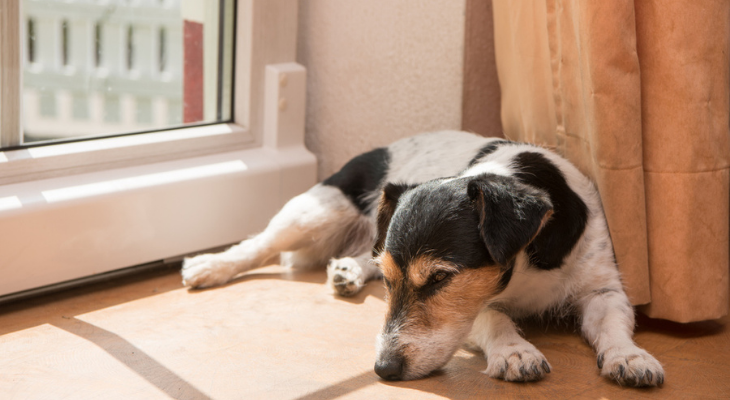
The Different Types of Ataxia in Dogs
Poor balance, falling, or a change in the way your dog walks could be caused by a condition called ataxia. Although any dog can develop ataxia, some breeds are at higher risk.
What Are the Symptoms of Ataxia?
Symptoms vary depending on the type of ataxia. If your dog loses its balance easily, develops gait issues, or shakes, the symptoms could be caused by one of these three forms of the condition:
Vestibular Ataxia. Vestibular ataxia occurs due to a problem with your dog's brainstem or the inner ear. These structures control balance and your pet's movements. Vestibular ataxia can be caused by injuries or infections, including ear infections. Other causes can include nerve degeneration, inflammation, antibiotics, hypothyroidism, fungal infections, poisoning, or cancer.
Vestibular Ataxia Symptoms. Dogs that have ataxia may fall, have difficulty walking, walk in circles, or tilt their heads. You may notice that your dog's eyes flutter side to side or up and down. Vestibular ataxia can make your dog feel dizzy and nauseated and may cause vomiting.
Proprioceptive (Sensory) Ataxia. Proprioceptive ataxia occurs due to compression of your dog's spinal cord. Your dog may develop this form of ataxia due to a blood clot, spinal infection or inflammation, tumor, cyst, or blood clot. It may also be related to defects or abnormalities in your dog's spine, an unstable spine, or narrowing of the canal that the spinal cord passes through.
Proprioceptive Ataxia Symptoms. It's difficult for a dog with proprioceptive ataxia to determine the exact placement of its limbs and body. This can make it hard for your dog to figure out where to move its feet when walking. In addition to an awkward gait, signs of proprioceptive ataxia can also include weakness and wobbling when walking or standing.
Cerebellar Ataxia. Cerebellar Ataxia can be caused by changes or abnormalities in the cerebellum, the part of the brain that coordinates your pet's movements and helps your dog balance. Other causes may include heart disease, a brain infection or inflammation, a brain tumor, a toxic reaction to an antibiotic, respiratory disease, red blood cell count issues, or lower-than-normal amounts of glucose, potassium, or calcium.
Cerebellar Ataxia Symptoms. Dogs that have cerebellar ataxia may shake and sway. Your dog might stagger, adopt an unusual walking style, or fall or stumble when turning. Shaking or moving its head might make your dog feel so dizzy that it falls. You may also notice unusual eye movements, either side to side or up and down. Russell, Toy Fox, Parson Russell, Smooth Fox, Tenterfield, and Jack Russell terriers may be more likely to develop cerebellar ataxia, according to the Orthopedic Foundation for Animals.
How Is Ataxia Treated?
Your pet's veterinarian will need to perform a few tests to determine the cause of your dog's condition. These tests may include blood work, urine tests, X-rays, ultrasound, computed tomography (CT), or magnetic resonance imaging (MRI) scans.
Treating underlying issues, like infections or hypothyroidism, may help improve your pet's balance and stop the symptoms. Unfortunately, it's not always possible to cure ataxia. If that's the case, your veterinarian can prescribe medications or provide suggestions that will improve your pet's comfort and decrease the risk of injury.
Have you noticed changes in your pet's gait or balance? Contact our office to schedule an appointment for your furry friend.
Sources:
PetMD: Loss of Balance (Unbalanced Gait) in Dogs, 4/11/16
Dogtime: Ataxia (Loss of Balance) in Dogs: Symptoms, Causes, and Treatments
